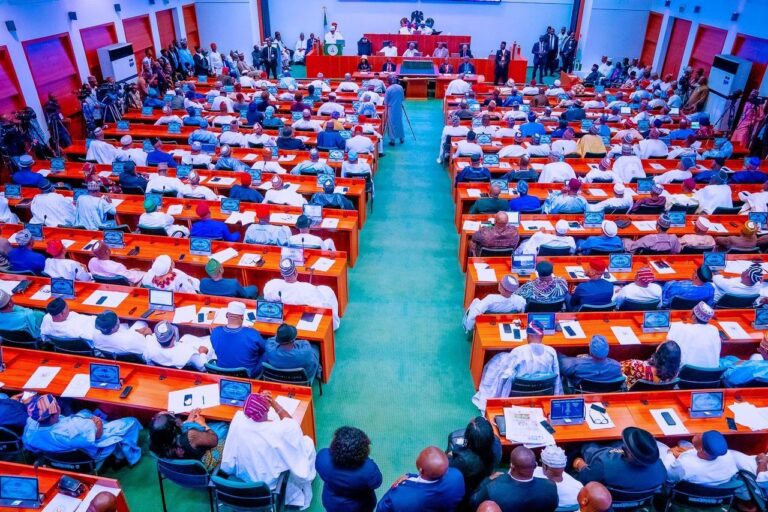
The Senate Wednesday went into an emergency closed-door session over a motion to enforce financial autonomy for the 774 Local Government Councils, given the pronouncement of the Supreme Court.
The emergency session followed the presentation of the motion sponsored by Senator Tony Nwoye (LP -Anambra) and nine other lawmakers at plenary on Wednesday.
Mr Nwoye had through orders 41 and 51 of Senate rules, while presenting the motion, alleged a plan by some state governments to avoid execution of judgement of the Supreme Court on autonomy of local government financing.
According to Mr Nwoye, the state Houses of Assemblies were attempting to enact alternative laws for their respective states.
He specifically alleged that some state governors were already using their House of Assembly to enact laws that would mandate local governments’ councils in their states to remit fund into state /local government Joint Account ruled.
Shortly after Mr Nwoye’s presentation, Senator Osita Izunaso(APC-Imo) seconded the motion.
Mr Izunaso said the motion was apt, saying that Nigerians were yearning for a change in local government administration.
He commended the executive for the judgement, saying that local government elections were being conducted across the country.
He said for any state house of assembly to attempt to enact a law against the matter was to attempt to undermine the Supreme Court pronouncement.
Sen.Adamu Aliero (PDP- Kebbi) also raised a constitutional point of order to halt further the debate and contribution to the motion.
Aliero, having cited Section 287 of the 1999 Constitution as Amended which stipulates enforcement of Supreme Court Judgement across the country, urged the Senate not to further debate the motion.
He said. “Supreme Court judgement is enforceable across the country. There is no need for us to be debating anything that has to do with it here.’’
President of the Senate, Godswill Akpabio drew the attention of lawmakers’ to section 162 sub-sections 6 of the 1999 constitution as amended.
Mr Akpabio, who read copiously the section, said it created the state /local government Joint Account.
“I think what we need to do is to carry out required amendments of certain provisions of the constitution as far as local governments autonomy is concerned”, he said.
Nwoye and Senator Abdulrahman Kawu ( NNPP- Kano ) raised further point of order .
The two points of order led into many senators approaching the senate president for personal consultation.
This eventually, made the Senate to resolve into an emergency closed-door session.
On July 11, the Supreme Court delivered a landmark judgment affirming the financial autonomy of Nigeria’s 774 local government councils.
In May, the federal government—through the Attorney-General of the Federation and Minister of Justice, Lateef Fagbemi, SAN—filed a suit at the apex court accusing the state governments of running the local government aground.
The minister also condemned the dissolution of elected local government councils by state governors. A seven-member panel of the Supreme Court justices chaired by Justice Mohammed Garba, disagreed with the position of the state governments and concluded that the federal government’s case had merit.
Justice Agim stated, “It is the position of this court that the federation can pay local government allocations directly to the local governments or through the states. In this case, since paying them through the states has not worked, justice demands that local government allocations from the federation account should henceforth be paid directly to the local governments. I hold that the states’ retention of local government funds is unconstitutional.”